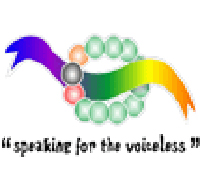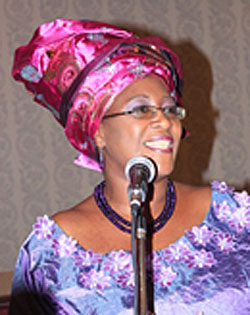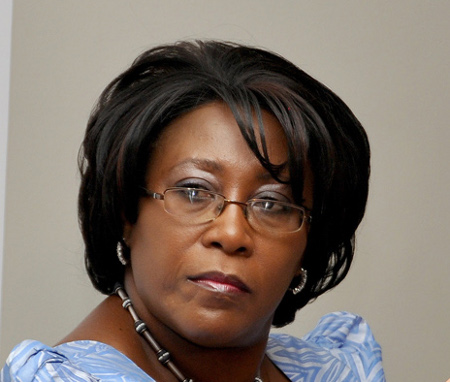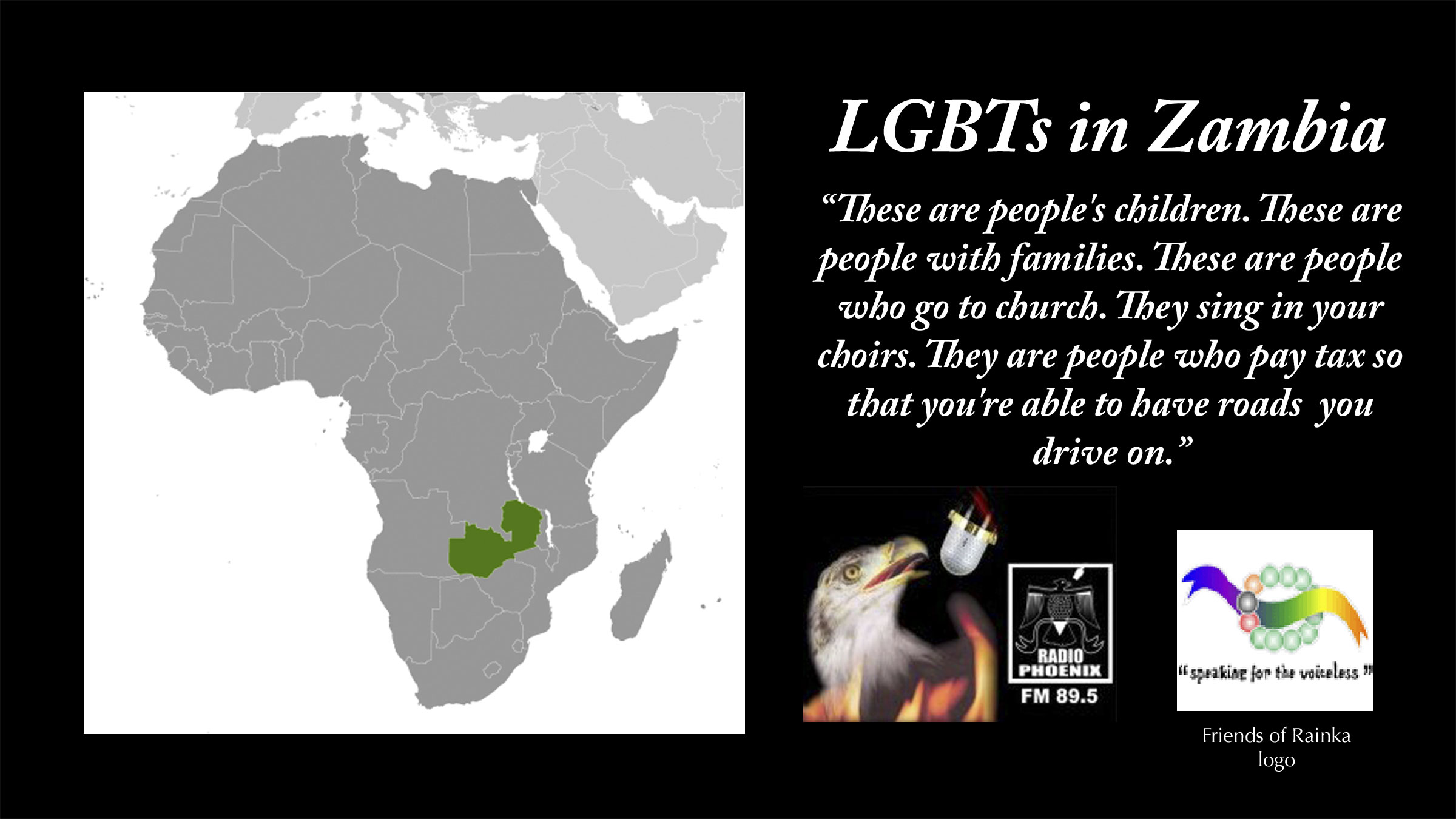Zambian First Lady seeks dialog; media prefer gay-bashing
Colin Stewart is a 45-year journalism veteran living in Southern…

Juliet Mphande, director of the Zambian LGBT rights organization Friends of Rainka, sees reasons to be hopeful about the Zambian First Lady’s recent statement that “silence around issues of men who have sex with men should be stopped and no one should be discriminated against on the basis of their sexual orientation.” But so far, the Zambian media have ignored this opportunity for dialogue about issues facing LGBT people. Here are Mphande’s comments about the remarks of the president’s wife, a prominent physician, and the media coverage of them:
Dr. Kaseba-Sata’s statement – Opportunity Lost
On the evening of November 5th, 2013, Dr. Christine Kaseba–Sata made an earth-shattering statement on the need for dialogue on the status of men who have sex with men (MSM) in relation to access to health and HIV/AIDS prevention at a UNAIDS meeting.

The media frenzy that followed her statement could be described as unfortunate at best. Most local media houses twisted the story and reported that the First Lady was concerned that homosexuals are spreading HIV/AIDS; and some went a step further to allege that the First Lady had appealed to the World Health Assembly and cooperating partners to help classify homosexuality as an illness so that the nation could openly debate the issue.
Credible sources state that this, by far, was not what the First Lady said. Her statement was taken out of context and twisted to suit the usual gay-bashing that characterise the homosexuality debate in the Zambian press and, therein, an opportunity for meaningful dialogue and debate around this issue was lost.
I have often pondered what the role of the media in Zambia is, as the fourth estate objectivity is taught in the first year of Journalism class and often re-emphasised by many a lecturer. However, most scribes who practice the profession these days are not schooled in the ethics of journalism to a point of making subjective opinions news stories. Whatever happened to the five Ws and one H?
My opinion of Dr. Kaseba-Sata’s statement is: It should be analysed from her structure of interpretation mainly, her background as a respected physician, and based on the current position she holds in Zambian society as a “mother to the nation” and, beyond that, an understanding of her own personal ambitious and achievements to date. So far, she has put cervical cancer treatment and prevention as a priority for the Zambian government. She also continues to work on sexual reproductive and health rights issues amongst others and has ventured into terrains most fear to tread. Dr Kaseba-Sata is ambitious and committed to the fight against HIV/AIDS and it may be this same ambition that now drives her to champion for perceived lost causes in the eyes of the Zambian majority.

Men who have sex with men (MSM) appears to be the buzzword in the public health fraternity in Zambia these days, so much so that even persons who have been averse to this issue in the past seem to be jumping onto the bandwagon to champion this issue. Their motives may vary depending on individual aspirations but this does not change the fact that lesbian, gay, bisexual, transgender and intersex (LGBTI) persons exist in Zambia and should be afforded the same platform to speak to their own issues without fear of arrests or retribution.
However, to set record the record straight, MSM is not a new word in Zambia, considering that in 2009 the National Aids Council of Zambia (NAC) included MSM in its definition of most at risk populations (MARPs), this was done without any fanfare or popping of balloons in the press. Some quarters would argue that the NAC failed to operationalise this definition in its National Operation Plans (NOP) but for most LGBTI human rights defenders, this was an enormous victory and one that was celebrated quietly without the need for to a media frenzy.
NAC and the ministry of health continue to make enormous strides in ensuring that MSM and other MARPs receive the much-needed attention from a public health perspective. The pace may be slower than we may want, but nonetheless progress is being made, silently and quietly by some dedicated technocrats who continue to push from a public health perspective towards addressing the devastating consequences that HIV/AIDS has had on this population. It is the lack of cohesion between the ministry of health with its counterparts at home affairs and justice that oftentimes derails notable progress made by the ministry of health and, sadly, the media remain right in the thick of things in fuelling this discord.
It is only when politicians make over-generalised statements and some media houses choose to twist issues raised that progress is lost. The First Lady’s statement was not made in isolation, it was not an epiphany that came to her when she woke up that day. It was by no means a Damascus experience but more a result of the countless long hours and hard work that public health professionals, stalwart civil society organisations and human rights defenders have put in over the past decade and beyond to ensure that these issues are brought to the fore.
This in no way means that she should not be praised for her courage and commitment to public health issues, it should however, not overshadow the work that others have put in notably the work of human rights defenders and other government officials who remain silent champions and work without the veil of immunity that the First Lady enjoys.

The media has an important role to play in national conversations, but that role should not be taken lightly and used carelessly. The media’s role should be to inform, educate and entertain, to unite and not divide, to build and not destroy. It is a sacred role and as such should be handled with sanctity.
Hate speech and vilification of minority groups are not traits that are taught in journalism school – factual and investigative reporting, objectivity and good ethics form part of the curriculum. The fact that some Zambian media houses opted to twist Dr. Kaseba’s-Sata’s statement vilifies an entire small but significant community and makes them susceptible to hate crimes and other vices, thereby contributing to losing an important opportunity for the nation to engage as opposed to inciting anger and violence. It is an unfortunate irony that, whenever someone makes a statement concerning LGBTI issues in Zambia, it is taken as a ploy by that individual or institution to promote homosexuality. It is a known fact that you cannot promote homosexuality in as much as you cannot promote heterosexuality.
Dr. Kaseba–Sata and many before her are not advocating for homosexuality but are speaking to urgent public health issues that require the nation’s attention, calling to mind that access to health is a right under the Zambian Constitution. Further, lesbian, gay, bisexual, transgender and intersex Zambians are not asking for any special rights but the rights that are afforded each Zambian in numerous policy documents — notably the right to life, privacy, expression and self-determination.
Juliet Mphande
Director,
Friends of RAINKA, Zambia
rainkazambia@gmail.com
Related articles
- Amid repression, Zambian First Lady opposes anti-LGBT bias
- (76crimes.com)
- Miracles do happen in Zambia (Open Society Initiative for Southern Africa)
- ‘Our lives are in danger’ – new threats to Zambian activists (76crimes.com)
- Politically motivated trial of Zambian AIDS fighter (76crimes.com)
- 43 anti-LGBT violations in Zambia; ‘accident waiting to happen’ (76crimes.com)
- How to help victims of anti-gay laws in Zambia (76crimes.com)
- In Zambia, ‘trial by ambush’ in anti-gay case (76crimes.com)
- Following Wave Of Homophobia, Zambia’s First Lady Steps Out To Oppose Sexual Orientation Discrimination (BuzzFeed)



Stop this homophobia and silliness.